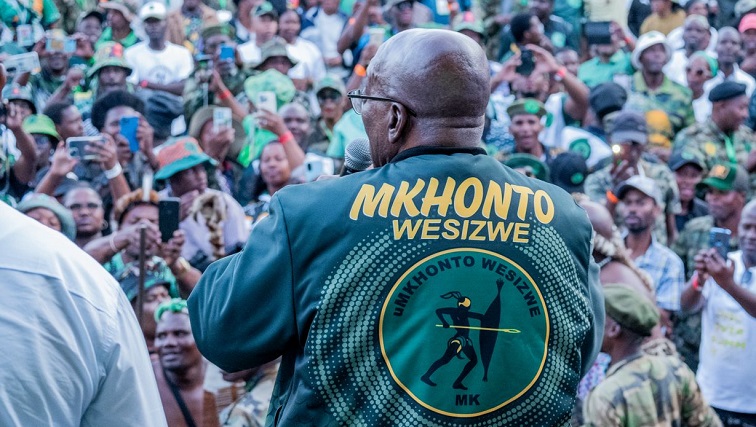Former President Jacob Zuma, leader of the Umkhonto we Sizwe (MK) party, has stepped up his calls to cast doubt on the May 2024 polls.
Mr Zuma has insisted his party will take the matter to an international tribunal seeking compensation. But is it possible?
The MK Party is once again attempting to contest the results of the 2024 national and local elections.
This follows the party's two unsuccessful attempts to challenge the May polls in the Electoral Tribunal, which the party withdrew, and the Constitutional Court's request for an injunction against the first sitting of Parliament. .
Both attempts failed, especially due to the lack of evidence to support the allegations.
Mr Zuma continues to question the credibility of the crucial general election results, claiming his new party was “stolen” from votes.
“What should we do? Because our votes were stolen. They are now getting together with their own partners (GNU). I think he's very angry about it.”
A new application is currently pending, but no decision has yet been made by the court.
Mr Zuma first said in June that he would take the issue to an international tribunal, but repeated his threat at the MK party's celebratory dinner in December.
“My view is that if South African judges don't respect the law, they should take it to an international court where the law applies. Stealing the vote of the winner is no small matter, no small matter. It doesn't matter. The thing is, if it's forced, I'm going to sell all my cattle to get the money to go there.”
The Constitutional Court is South Africa's highest court.
Furthermore, the only courts applicable to this case are the African Court of Human Rights, the International Criminal Court, or the International Court of Justice.
The next question to consider is where the jurisdiction of these courts lies and whether this type of claim may be referred to them.
At the ICJ, only states are entitled to appear before the court in contested cases. The court does not have jurisdiction to process applications from individuals, non-governmental organizations, companies, or other private entities.
The ICC, on the other hand, has jurisdiction over the most serious crimes of concern to the entire international community: genocide, crimes against humanity, and war crimes.
Turning to continental courts, international law expert Patrick Luxa Kadima believes that this claim to go to international tribunals is baseless.
“The next question is whether there is an international court or regional court in Africa that can hear voting matters. When it comes to southern Africa, there is simply nothing like that available to the former president, because the SADC court no longer has The SADC court no longer exists because it was dissolved while he was working with other member states as head of state. He goes to the East African Court of Justice. The African Court of Human Rights cannot therefore do so because it does not have jurisdiction for members of the East African Community and even the ECOWAS Court is vested in the members of the West African Community. The African Court of Human Rights also does not have absolute jurisdiction to hear people's rights, as it applies only to cases and disputes submitted to the court.

